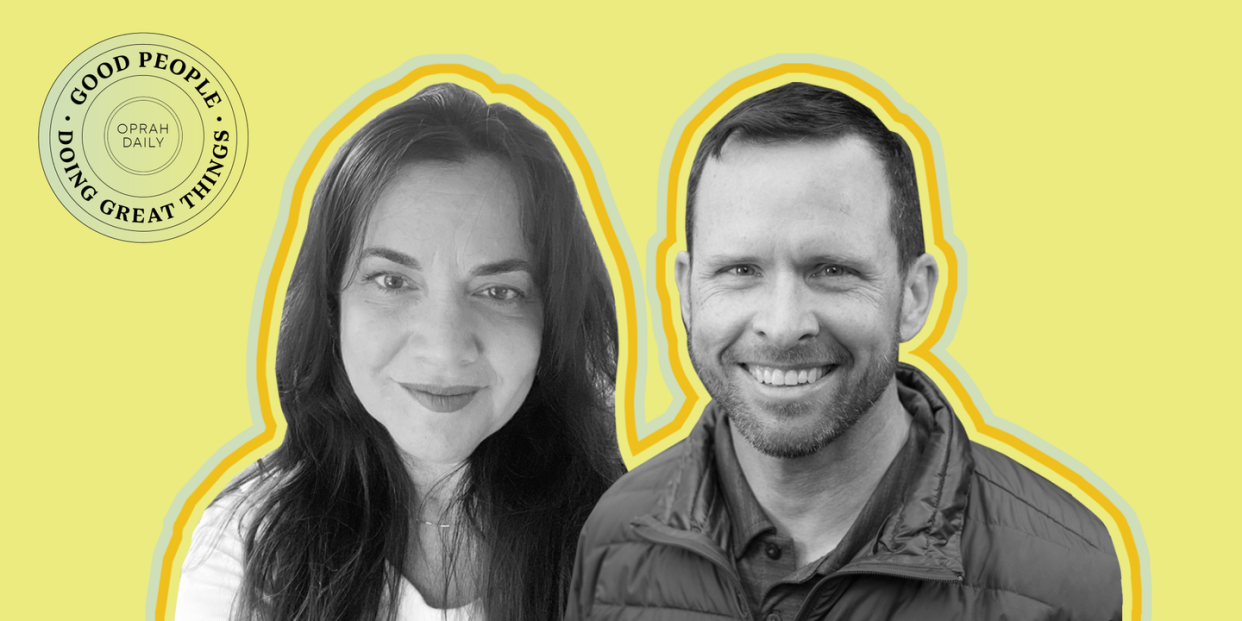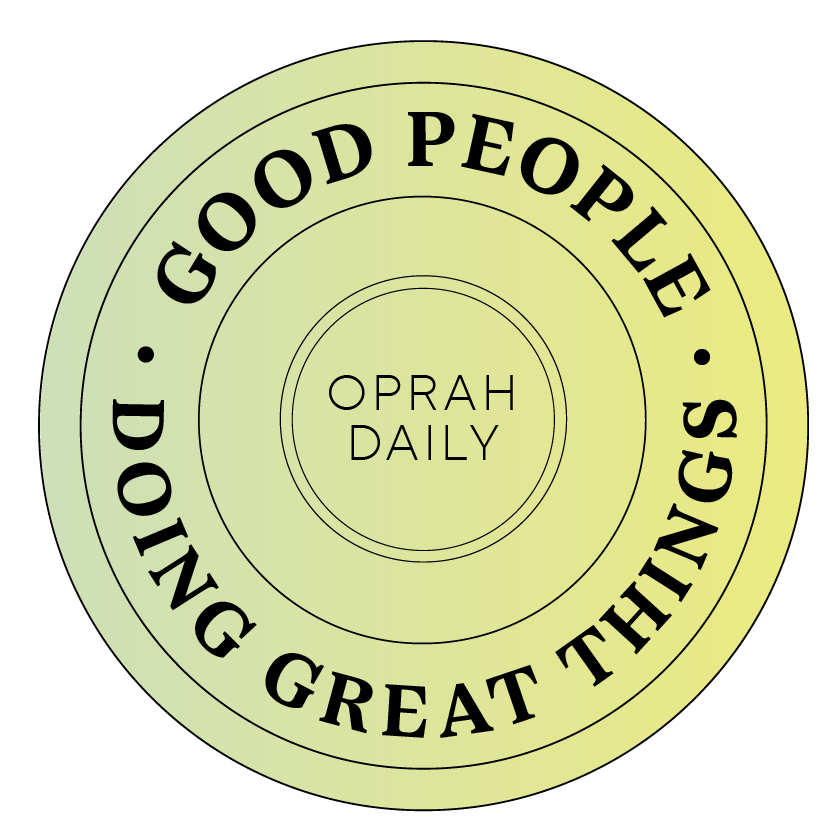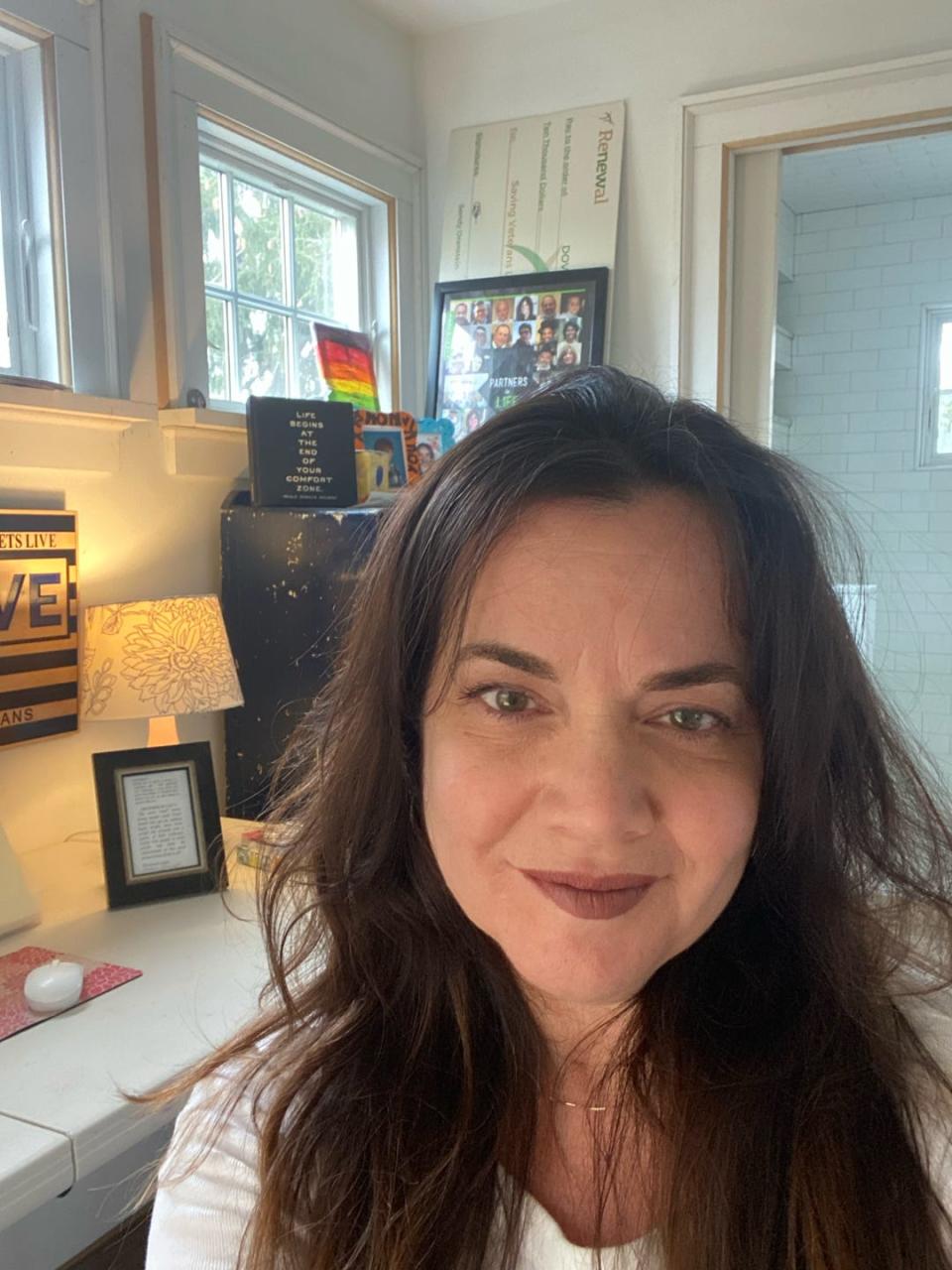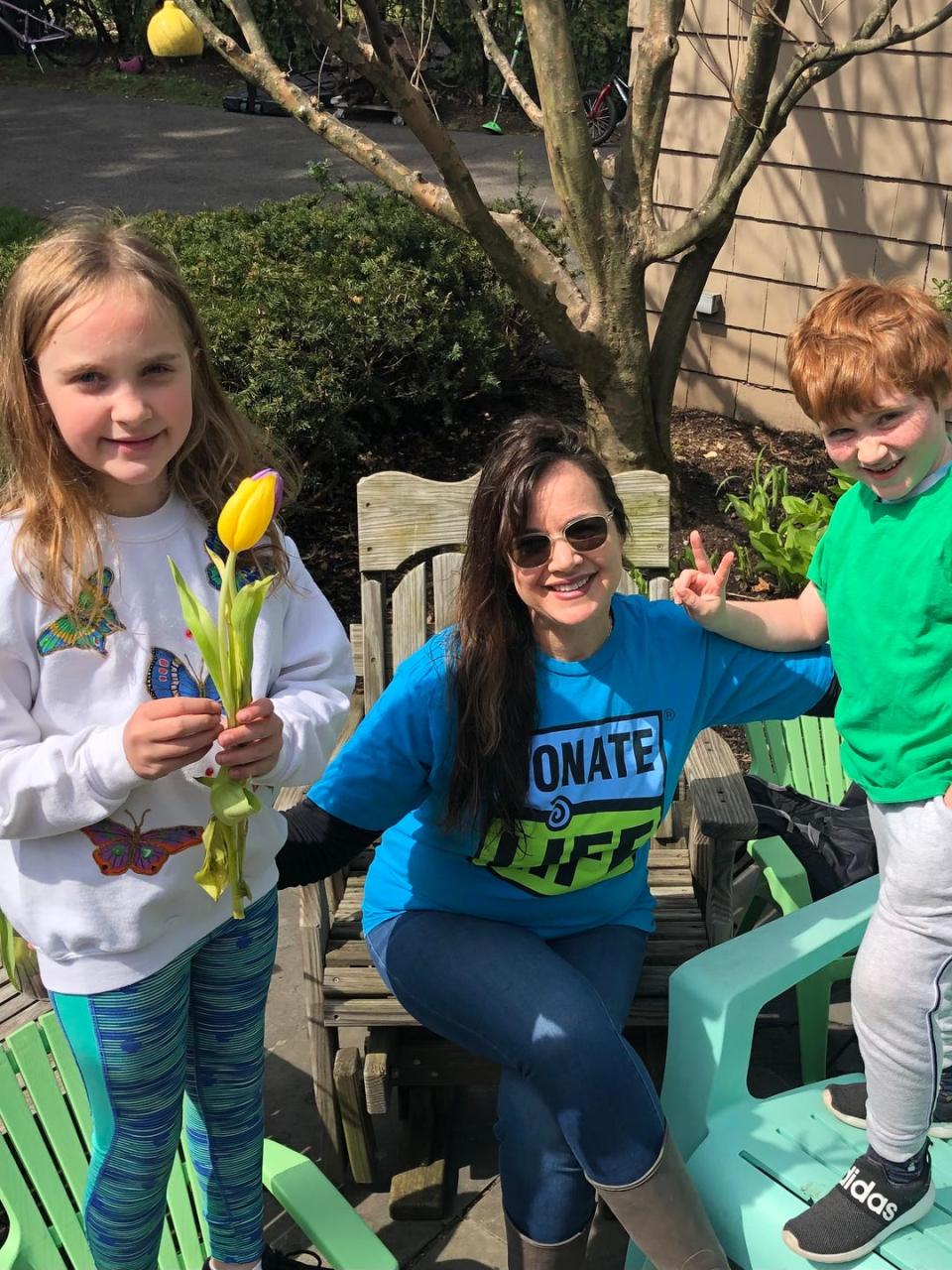Sharyn Kreitzer and Dave Ashley Are Saving Lives by Finding Kidney Donors for Veterans Who Need Them


Oprah Daily’s series Good People Doing Great Things highlights everyday heroes who see a need and are stepping up to help. Want to celebrate a local leader who’s making an impact? Email us at OprahDailyStoryIdeas@hearst.com and we may feature them in an upcoming column.
It’s the end of the first week of April—National Donate Life Month—and Sharyn Kreitzer, founder and executive director of Donor Outreach for Veterans (DOVE), is beaming. One of her donors, Lindsay Gutierrez, an Air Force vet, was just cleared to give her kidney to a transplant recipient in dire need. “She was crying with joy when she learned that she could give back that way,” says Kreitzer. “I’ve seen in a short time how this has taken hold!”
“This” is the nurturing community Kreitzer, 53, has grown over the last two years to help veterans in need of kidney transplants. As an administrator in a U.S. Veterans Affairs Department (VA) transplant center for four years and a professional working in the field of organ transplants for nearly 25, Kreitzer witnessed firsthand the layers of bureaucratic obstacles that meant some patients died before they were able to receive transplants. At the same time, she was moved by the strong feeling of brother-sisterhood and the “Leave no soldier behind” bond that united the veterans she served. For Kreitzer, the aha moment was realizing the impact she could have on this community as an advocate and a navigator—becoming the bridge connecting those in need with those who wished to give.
In January 2020, just before her 51st birthday, Kreitzer founded DOVE. And in just two years—amid a global pandemic, no less—the nonprofit has facilitated 13 kidney transplants with six more scheduled in the next three months; 26 more donors are in the evaluation phase.

Working from her home office in Montclair, New Jersey, where she lives with her children, Nathan, 9, and Naomi, 11, and her partner, Thomas, Kreitzer explains the problem DOVE is trying to solve: “Veterans have a higher incidence of kidney failure than non-vets. Of the 96,000 Americans currently waiting for kidney transplants, most will have to settle for a donation from a deceased donor, and the wait is about five years, which many will not survive.”
The answer, says Kreitzer, is donation from a living donor—in many ways a superior option. “These kidneys last longer,” she says. And the transplants can take place as soon as a match is found, no need to wait for a compatible organ to become available when another patient passes away. But there are precious few kidneys currently available for live transplant, since responsibility for obtaining a living donor is on the recipient. Says Kreitzer: “Can you imagine how hard it is for someone with a chronic, debilitating condition to garner the resources to ask for a donor?”
That’s where DOVE comes in. Kreitzer’s organization connects with veterans who need transplants and presents their stories on its website, whose tagline is “Encouraging People to Give, So Vets Can Live.” The question for those who visit is bold and direct: “Will You Step Up?” Unlike other transplant networks, DOVE not only encourages but facilitates opportunities for donors and recipients to meet, which is often highly gratifying for the donor.
A Life of Service
Several years before Kreitzer founded DOVE, Dave Ashley embarked on his own path to donating a kidney. It was the summer of 2016 when Ashley, an active Air Force colonel and frequent consultant to the Pentagon, saw a fellow West Point alumnus’s Facebook post: a plea on behalf of a friend named Chris who was in desperate need of a kidney transplant. Ashley saw the post, and was moved to act. “I just thought being a donor sounded like the right thing to do,” he recalls.
Step one was discussing the matter with his wife, Diane, and digging into research how losing a kidney might impact his life. Ashley reached out to people in the competitive sports communities he participated in—adventure racing, mountaineering, ultra-marathons—asking whether anyone could share their experience with him. None of them were living kidney donors.
Still, he decided the risk was worth it. Ashley contacted his West Point friend, who put him in touch with Chris’s transplant agency. Over a two-month period, Ashley underwent extensive bloodwork and diagnostic testing to make sure it was safe for him to donate, and to determine whether he was a match for Chris. After the medical transplant team cleared Ashley and confirmed the match, he asked to speak Chris, who shared his own harrowing journey. Chris shared with Ashley that he had lost his job, moved in with his parents, had had sepsis and nearly died. At that moment, Chris was prepared to wait three to seven years to receive a kidney from a recently-deceased person—if he could live that long.
According to Ashley, Chris’s condition improved dramatically within weeks of the transplant. And by 2018, a year after receiving Ashley's kidney, Chris was back at work and was doing well. The experience of having saved Chris’s life was powerful. “I thought I was giving a gift and asking nothing in return,” says Ashley. Instead, he had received an equally life-changing gift: “I reevaluated my life.”
Ashley decided to retire early from the military and launched Adventure Kidney, an organization that raises awareness about the need for kidney transplants and that aims to ease concerns about having an active lifestyle post donation. Says Ashley, now 47, “There’s nothing you can’t do with just one kidney. You can do amazing stuff.”
In Ashley’s case, “amazing stuff” has meant dedicating himself to climbing the highest summits on each of the seven continents in the world, within a year and with only one kidney. This past March 25, he scaled his sixth of seven summits—Mount Kosciuszko in Australia. “It took me about seven hours, passing a poisonous snake, getting scratched by the underbush, seeing the beautiful country of Australia,” says Ashley. Then the sky seemed to widen and he could finally see the top. “Tears were coming out of my eyes from just knowing I had a chance to be successful.” He is set to scale Mount Everest this month, determined to prove, through this final climb, just how much one can accomplish with one kidney.
Now and Tomorrow
Dave Ashley and Sharyn Kreitzer—Adventure Kidney and DOVE—are two parts of a solution: Ashley inspires; Kreitzer implements. And now, together, they make it possible to match living kidney donors with recipients in need.
Six months ago, Kreitzer connected with Ashley after seeing one of his Instagram stories. “He was just extraordinary," Kreitzer says. "I wanted to know him.” Ashley is now on DOVE’s board of directors, and he and Kreitzer are working together, in their complementary ways, to decrease the transplant waitlist.
Kreitzer hopes that when Ashley finishes his Mount Everest climb, his story will inspire others to become donors and to bring in much-needed funding to their transplant initiatives. For the past two years, Kreitzer has dipped into her personal savings to fund DOVE. “I first had to show that my veteran-centric kidney donation model would work before organizations would want to fund it,” says Kreitzer. “My first check came from Freedom Mortgage Corporation in February for $5,000.”
And with Ashley’s influential network of contacts, the two hope to grow that funding base quickly. “Dave’s a great spokesman and advocate for veterans’ issues; he’s a connector,” says Kreitzer. “Our combined efforts have the potential of making a difference.” After Ashley returns from his May 10 Mount Everest climb, he and Kreitzer, who have met only virtually so far, will celebrate in person.

Lindsay Gutierrez’s operation is planned for May 25, ahead of Memorial Day weekend. “When I found out I was approved to be a donor, I felt like shouting my excitement from the rooftops!!!” she writes in an email. “It was a surreal moment that has forever changed my life and will change someone else’s. Thank you, God!!!’” Gutierrez will be helping a young Marine, and plans to meet him just before or after the operation. And another recent announcement has prompted cheers in the donation community: Kreitzer made the decision to become a donor herself. She began the qualifying medical testing this spring and, if cleared, hopes to donate in August.
“In my work in healthcare, I have always treated every patient, every caregiver, as if they were my own family,” Kreitzer says. “It is that simple. That is the way I lead my life. That is the way I want my children to live theirs.
“We can solve big problems in communities—not in isolation,” she adds. “We are all in this together.”
You Might Also Like

